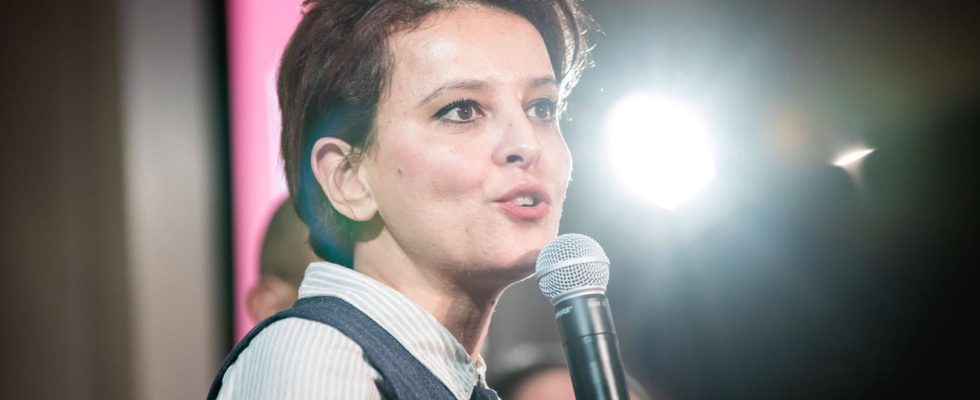Najat Vallaud-Belkacem, Minister of National Education under François Hollande, proposes limiting daily access to the internet in France for each citizen. The objective: to deal with “digital pollution”.
Limit weekly internet access. This idea is that of the former minister under François Hollande, Najat Vallaud-Belkacem. In a column published this Monday March 18 in Le Figarothe current general director of the NGO One France and president of France Land of Asylum proposes a simple measure, rationing access to the web. “Between studies highlighting the devastation caused by overexposure to screens, those showing to what extent social networks are toxic – particularly for young girls – or the recent work of the Senate on the harm of online pornography”, the time is running out, so, “do we need that many lawsuits?” she asks.
“Three gigs per week”
First of all, the former Minister of National Education is considering a drastic reduction in screen time, and for everyone. Its “large-scale political action” would consist of thinking “concretely about ways to ration the internet, for example by granting a limited number of gigabytes to be used daily”. She mentions several benefits in particular: cognitive, for health, but also to fight against discrimination, harassment or global warming. “If we know that we only have three gigabytes to use in a week, we are probably not going to spend them posting hateful comments or making fakes. Perhaps we will stop considering it “normal” to spend several hours on pornographic sites watching ultra HD videos,” she continues.
Errors, approximations… A proposal already criticized
According to Arcep, a French person consumes on average 14 GB of internet per month from their mobile. A household consumes on average 222 GB per month via its box according to figures from the French Telecoms Federation dating from December 2023. So, an application of the former minister’s proposal would be akin to a drastic reduction in internet consumption.
If this text did not provoke indignation or controversy, it still caused a reaction in the political sphere. The majority deputy Eric Bothorel deplores a “tribune which mixes clichés, approximations and obvious errors”. He denounces in particular “the environmental footprint of digital technology” which, for him, is linked to “terminals and their possession, far ahead of uses”. This Monday, on her account I propose, it’s a simple illustration. (This platform) is not an attack on freedom of expression” she defended herself.
“There is a digital emergency as there is a climate emergency”
Najat Vallaud-Belkacem’s proposal is in reality part of a more global approach. “There is a digital emergency just as there is a climate emergency. It does not consist of sending additional satellites into space, but of pulling the plug, turning off our screens, and starting to live again, finally” explains- she said, still in the columns of Le Figaro. “We can’t cross our fingers and hope that things get better. If we don’t voluntarily unplug the cord, the possibilities for the internet to self-regulate are the same as for financial markets, and we see how much it works…” she denounced.
She finally calls for “courage” and determination: “This requires real courage. This courage that we have forgotten, by signing online petitions, by posting comments and being angry with tweets. All these actions have their virtue: they also have their limits. Above all, they do not, in reality, require anything from us, unlike the possibility of rationing. Let us therefore be courageous and determined.”
